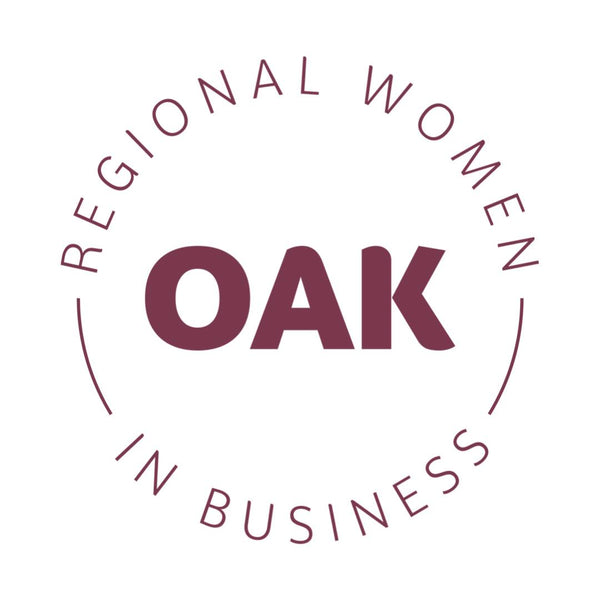Show your appreciation and support us in continuing to produce high quality content by sponsoring an episode or simply "buy us a coffee" - donate here
[Timestamp: 00:05:10]
A research paper published in the Journal of Audio and Radio this month examines the opportunities and challenges that podcasts hold for amplifying rural women's voices.
Kirsten Diprose (pictured), founder of the Rural Podcasting Co and host of Ducks on a Pond, worked with Dr. Maria Ray, a senior lecturer at Deakin Uni, to explore podcasting's impact on rural communities.
Eleven women met the criteria of rural women podcast producers with nine participating in the study. (Listen to excepts of these interviews in a podcast.)
Kirsten said their research uncovered a strong desire among rural podcasters to connect with and amplify the voices of their communities. Many saw their podcasts as platforms for addressing specific rural issues, like Motherland by Stephanie Trethewey, which focuses on connecting rural mothers and addressing issues like access to support groups.
"I wasn't surprised to hear from most of the women that they wanted to connect with other rural women and that was important. A lot of the women also wanted to raise other rural women's voices. And for some of the podcasters, it was more about a particular issue, and that's how it arose," says Kirsten.
A surprising theme emerged from Kirsten's research; podcasters' profound sense of responsibility towards their guests, ensuring they feel comfortable sharing personal stories.
"A really interesting theme that I didn't expect was that so many of our podcasters really feel a strong duty of care to their guests. They really like to make sure it's understood, and the guest feels comfortable when they're opening up because many of the people who we're speaking to on podcasts have never been on a podcast or any kind of media before, or you're having an hour long conversation with someone and asking them about really personal and emotional things."
Kirsten says digital connectivity remains a significant challenge, particularly in remote areas with limited internet access. And monetisation can be difficult, as securing sponsorships and generating revenue is often challenging for niche podcasts.
"It's still quite challenging to find sponsorship. Advertising perhaps is another way. There's memberships that might be available, but a lot of the women I spoke to talked about how it's really started as a passion project.
"Podcasting being a relatively new thing in the scheme of media. A lot of people don't understand the time that it takes to produce a good podcast. So therefore, when someone says, 'Oh, can you make us a podcast or what would this cost for a podcast?', they're quite surprised because of the time that takes."
Speaking as a podcast host and producer, Kirsten believes there is a missed opportunity for agriculture companies to sponsor podcasts.
"When I look at the sort of podcasts in the rural and agriculture space, and I see a lot of podcasts that are about ag and farming, and a lot of those are hosted by men and they seem to be able to get sponsors a lot easier.
"I think it's because that link for businesses is probably easier for example, I'm a chemical company or I'm a grains company and this podcast is about the practicalities or the finance of farming.
"But I think there's a huge missed opportunity here for some of those social things, which is what the women often talk about. A lot of these podcasts are more social-based and human interest-based.
"When you think about it, women are often the ones who do the books on the farm. There are plenty of women who are involved in community and business in different ways.
"I think a smart business will really look at these podcasts and realise that being associated with the kudos of people doing great things, of communities coming together and doing big things, or movements for change, which is what some of these podcasts are, they can get a lot of that kudos through that."
Now the academic paper has been released. Kirsten is hoping policymakers and academics will recognise podcasting as a valuable form of journalism and community building alongside traditional media, challenging stereotypes about rural communities and amplifying diverse voices.
"I hope that it's taken up by policymakers and academics when they're thinking about what life is like for rural and regional women and the role that we play that it's broader than some of the old stereotypes. There are some very innovative women in the bush because you have to be, and also because, why not? Now that we've got the tools of technology, we can do anything. And I think that's changing the face of rural and regional life in the country for the better.”
---
As part of the research, Kirsten recorded the interviews and published it as a podcast episode on Ducks on a Pond. It's fantastic! Rural podcast hosts share why they started their own podcasts and what it means for them.
You’ll hear from six amazing rural women podcasters/entrepreneurs:
- Skye Manson, founder and creative director of Manson Podcasting Network, Gunning, NSW
- Kimberley Furness, founder of OAK Magazine, Bendigo VIC
- Katrina Myers, This Rural Life, Barham NSW
- Stephanie Coombes, Central Station Podcast, Katherine, NT
- Stephanie Trethewey founder of Motherland, TAS
- Samantha Meurant, Rural Compass, Cunnamulla, QLD

